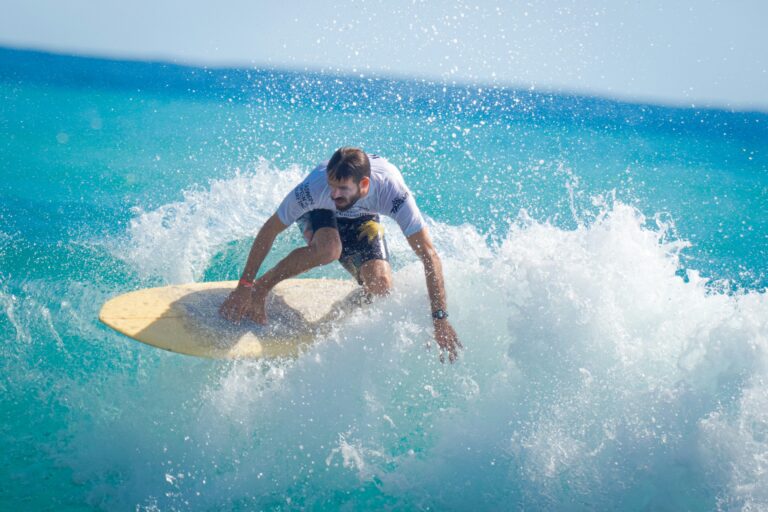Surfing is more than just a sport; it’s a way of life deeply connected to the ocean. Surfers, perhaps more than anyone else, intimately understand the importance of protecting our oceans and coastlines. As they ride the waves, they witness firsthand the beauty and fragility of marine ecosystems. This blog post explores the intersection of surfing and environmental activism, highlighting how surfers around the world are using their passion for the sport as a platform to advocate for ocean protection.
Surfing as a Lifestyle
Surfing Culture and Identity
Surfing isn’t just a sport; it’s a way of life for many enthusiasts. From the moment they catch their first wave, surfers often find themselves immersed in a unique culture that revolves around the ocean. They adopt a lifestyle characterized by freedom, adventure, and a deep appreciation for nature’s beauty. Surfing becomes more than just a recreational activity—it becomes a fundamental part of their identity.
Connection to Nature
Surfers develop an intimate connection with the natural world, particularly the ocean. They learn to read the waves, tides, and weather patterns, becoming attuned to the subtle nuances of the marine environment. This connection fosters a profound respect for nature and a desire to protect it for future generations. Many surfers actively engage in environmental conservation efforts, advocating for clean beaches, marine wildlife protection, and sustainable practices.
Pursuit of Joy and Flow
For surfers, riding waves represents more than just adrenaline-pumping excitement; it’s a form of meditation and self-expression. The act of surfing induces a state of flow—a mental state characterized by complete immersion and focus. In those fleeting moments atop a wave, surfers experience pure joy and a sense of unity with the ocean. This pursuit of flow drives them to constantly seek out new waves and challenges, fueling their passion for the sport.
Community and Camaraderie
Surfing fosters a tight-knit community bonded by a shared love of the ocean. Surfers often form close friendships with fellow wave riders, united by their mutual experiences and respect for the sea. Whether paddling out together at dawn or swapping stories over a bonfire at sunset, these connections run deep. Surfing transcends barriers of age, background, and nationality, creating a global tribe of individuals connected by their common passion.
Understanding the Fragility of Marine Ecosystems
Impact of Human Activities
Surfers are acutely aware of the threats facing marine ecosystems, as they witness firsthand the consequences of human actions on the ocean. Pollution, overfishing, habitat destruction, and climate change pose significant risks to the health of marine environments. Surfers see plastic debris littering their favorite breaks, observe dwindling fish populations, and experience the effects of warming oceans on wave patterns.
Advocacy for Conservation
Driven by their love for the ocean, surfers often become advocates for marine conservation. They use their platform and influence to raise awareness about environmental issues, lobby for policy changes, and support conservation initiatives. Surfers participate in beach cleanups, collaborate with environmental organizations, and promote sustainable practices within their communities. Through their actions, they strive to protect the fragile ecosystems that sustain both waves and wildlife.
Educating the Next Generation
Surfers recognize the importance of educating future generations about the importance of ocean conservation. They mentor young surfers, instilling in them a sense of stewardship for the marine environment. Surfers teach newcomers about the principles of Leave No Trace, urging them to minimize their impact on coastal ecosystems. By passing down their knowledge and values, surfers hope to inspire a new wave of ocean advocates who will continue the fight for conservation.
Surfing’s Historical Ties to Environmentalism
Conservation Roots
Surfing has deep historical ties to environmentalism, rooted in the early days of the sport. Surfers have long recognized the importance of protecting the ocean and coastal environments where they ply their craft. In the 1960s and 1970s, as surfing experienced a surge in popularity, many surfers became vocal advocates for environmental conservation. They spoke out against pollution, overdevelopment, and industrial practices that threatened coastal ecosystems.
Environmental Awareness in Surf Culture
Surfing culture has always been closely intertwined with nature, fostering a strong sense of environmental awareness among participants. Surfers spend countless hours in the ocean, gaining firsthand knowledge of its beauty and vulnerability. This connection inspires a deep-seated desire to preserve the marine environment for future generations. Surfers view themselves as stewards of the ocean, committed to protecting it from harm.
Surfing Icons as Environmental Advocates
Throughout history, surfing icons have used their platforms to champion environmental causes. Prominent surfers like Jack O’Neill, founder of the iconic surf brand, and environmental organizations like Surfrider Foundation have played pivotal roles in raising awareness about marine conservation issues. These figures have leveraged their influence to mobilize surfers and the broader community to take action in defense of the ocean.
Individual and Collective Actions of Surfers
Personal Commitments to Sustainability
Surfers are not just passive observers of environmental degradation; they are active participants in the fight against it. Many surfers adopt eco-friendly lifestyles, making conscious choices to reduce their carbon footprint and minimize their impact on the planet. They embrace practices such as reducing plastic consumption, supporting sustainable brands, and practicing responsible tourism when visiting coastal destinations.
Community Engagement and Grassroots Initiatives
Surfers mobilize their communities to take collective action in support of environmental causes. They organize beach cleanups, tree planting events, and educational workshops to raise awareness about pressing environmental issues. Grassroots initiatives led by surfers have proven to be effective in effecting positive change at the local level, inspiring others to join the movement for environmental conservation.
Collaborative Efforts and Partnerships
Surfers understand that collective action is key to addressing complex environmental challenges. They collaborate with like-minded individuals, organizations, and businesses to amplify their impact. Surfers partner with environmental nonprofits, government agencies, and corporate sponsors to implement conservation projects, advocate for policy changes, and fund research aimed at protecting marine ecosystems. By working together, surfers harness the power of collective action to effect meaningful change.




